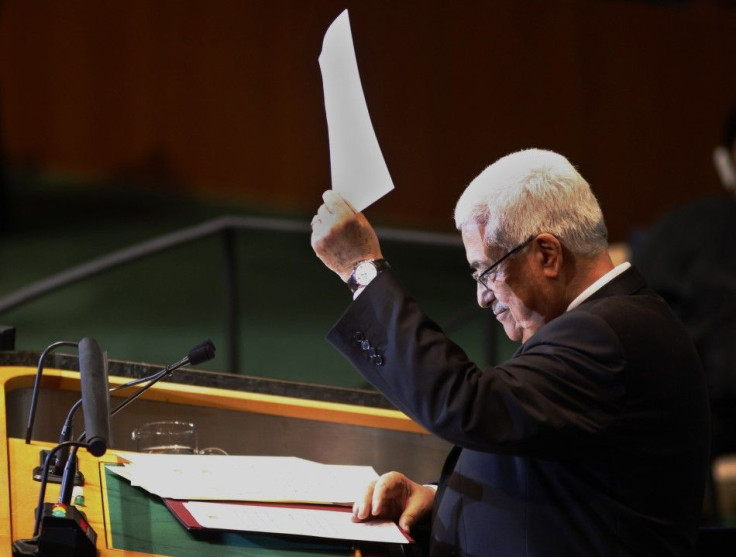Saudi Arabia Snubs U.S., Calls for Palestine's Full U.N. Membership

Saudi Arabia has called for the inclusion of Palestine in the United Nations, signaling that the United States is losing key support of many traditional allies in the Middle East.
Days after the U.S. unequivocally said Palestine's bid for full membership in the world body was not ripe and that it would veto such a move, Saudi Arabia, a staunch supporter and perceived errand boy in the Middle East, toed a vastly different line.
As a result of the continued Israeli intransigence and disruption of the peace process, the Kingdom of Saudi Arabia calls upon all member states of the United Nations to state of Palestine on the border of June 4, 1967 with East Jerusalem as its capital, and to grant it full membership of the United Nations, Saudi Arabian foreign Prince Saud al-Faisal said in a statement.
Saudi Arabia added salt to the U.S. wound by calling for key reforms in the U.N. system and questioning the veto option used by the super powers.
One of the important reforms should be restricting the use of the veto power through a commitment from permanent members not to use it toward actions that are intended for the implementation of already adopted resolutions of the Security Council, the Kingdom said.
Last week, the efforts of Palestinian President Mahmoud Abbas to push for United Nations membership met with the stiffest resistance when U.S. President Barack Obama made it clear he would veto any resolution recommending U.N. membership to Palestine.
Reiterating the unflinching support for Israel, Obama had told the U.N. General Assembly that the formation of a Palestinian state could be possible only through talks with Israel.
However, the bold stand adopted by Saudi Arabia will put pressure on the U.S. as the U.N. Security Council is taking up the Palestinian move on Wednesday.
Riyadh has piled pressure on Washington by turning the world body's attention to the issue of U.N. reform and the demand to cede more powers to the general assembly.
The biggest hurdle in Palestine's quest for U.N. membership is the stiff opposition of the United States. Even if two thirds of the U.N. members voted in favor of Palestine's bid, it would still require the approval of the 15-member Security Council. However, if the U.S. uses the veto power, this would never be possible.
We are of the view that real reform requires giving the General Assembly a key role in maintaining international peace and security. Moreover, my country believed and still believes that the ultimate goal for any restructuring of the Security Council should be strengthening its capabilities in order to effectively play its role in accordance with the U.N. Charter, Saudi Arabia said.
U.N. rules stipulate that a full membership application requires an approval by the Security Council and a two-thirds majority in the 193-member General Assembly. As long as the U.S. is against the membership move, Palestine's hopes will not be fulfilled.
Al-Faisal's statement also said the U.N. should avoid the double standards and emerge more credible in dealing with the Palestinian issue, adding that no other regional conflict was more influential upon world peace.
The strident pro-Palestine stance taken by Saudi Arabia is not surprising, but the brazen resolve to counter the U.S. signals that Washington is fast losing clout in the region.
The Saudi disaffection must worry the U.S. even more at a time when other traditional allies in the Muslim world like Egypt and Turkey have been spinning away from Washington.
The Saudis have been far too happy about the U.S.-backed regime in Iraq, and have had serious differences of opinion with the U.S. over the handling of the Bahrain uprising earlier in the year. The Palestine issue has apparently handed them the right opportunity to snub the U.S.
The Saudi view of the Palestinian crisis and the U.S. role in it were encapsulated in a recent article in the New York Times by influential Saudi royal and former envoy to the U.S, Prince Turki al-Faisal. He said if America did not support Palestine's membership bid, American influence will decline further, Israeli security will be undermined and Iran will be empowered, increasing the chances of another war in the region.
Moreover, Saudi Arabia would no longer be able to cooperate with America in the same way it historically has, he added.
© Copyright IBTimes 2024. All rights reserved.



















